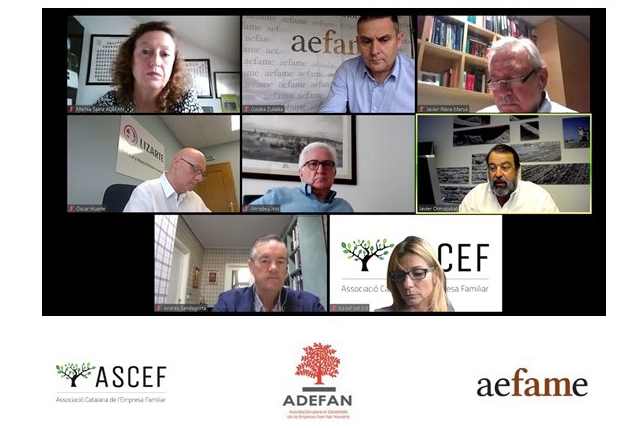The ASCEF predicts a new scenario after COVID-19 where industries will compete more over quality than price

The Catalan Association of Family Businesses (ASCEF) believes that, in the wake of COVID-19, family businesses in the industrial sector will be able to position themselves in more demanding markets where reliability and quality are valued higher than price. In an online meeting organised by the family business associations of Navarra (ADEFAN), the Basque Country (AEFAME) and Catalonia (ASCEF), employers agreed that these opportunities will appear “as long as the industry is prepared for this new scenario“.
In the view of the ASCEF President, Amadeu Jori, “in the past 30 years, the industrial sector in Spain has always been the ‘ugly duckling’ of the economy and its strategic value has not been taken into account, leading it to trail the service sector. The current crisis has highlighted how important it is for a country to have a competitive and modern industry.”
Javier Ormazabal, the President of Velatia, Javier Riera-Marsá, the CEO of Radar Process (the Coemba Group) and the President and CEO of Lizarte, Óscar Huarte, spoke at the meeting. This forms part of the “Family Business shares” cycle, which is jointly organised by 18 territorial associations from all over Spain and brings together 1,200 companies.
The employers agreed that foresight in ensuring company liquidity, commitment to internationalisation and the flexible application of temporary lay-offs (ERTE) were key factors in ensuring the continuity of the business idea. “We have to learn to move differently and grant our people a very high level of autonomy,” the President of Velatia said in this regard. Likewise, the issue of investments also arose during the debate. Here, the CEO of Radar Process regards as essential time periods and confidence, elements that will only be possible when a vaccine is available.
With regard to the possible state of global supply chains, the participants displayed optimism about the role that Spanish industry can play. “Many opportunities will emerge from this crisis and we must be ready,” Mr Riera-Marsá said. This idea was shared by Javier Ormazabal who believes there will be acceleration of the process that was already ongoing about whether the concentration of suppliers was adequate. “Spain has the opportunity to position its industry in some fields in which we have been working for years because reliability and quality will be valued more than cost,” he said.
Mr Riera-Marsá added that: “Spanish industry must be committed to restructuring in order not to have to depend so much on abroad for necessary products in a situation similar to the one we are enduring.”
Finally, asked about the active policies that the Spanish Administration should pursue to assist companies in their reactivation process, Mr Huarte called for aid for investment, for the new business alliances that may arise, or for the maintaining or increasing of employment. In this regard, “the Administration should consider us as key allies whose purpose is to create value,” he stated in reference to the long-term vision, the commitment to employees and the solvency that has always been displayed and characterised by family businesses.